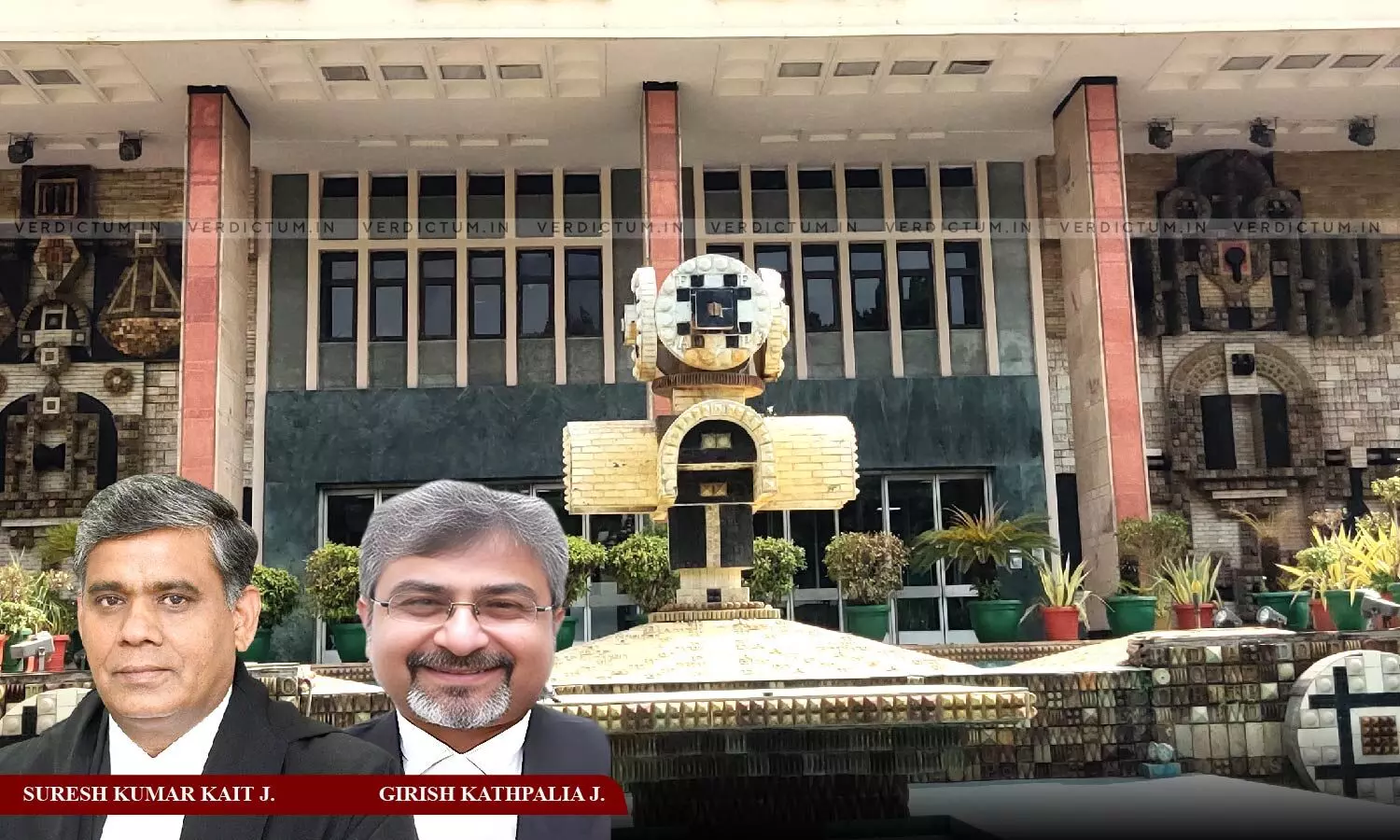
Disciplinary Authority, While Imposing Punishment, Cannot Discriminate Between Two Employees Guilty Of Similar Charges: Delhi HC
 |
|The Delhi High Court observed that a disciplinary authority, while imposing punishment, cannot discriminate between two employees held guilty of similar charges.
The Division Bench of Justice Suresh Kumar Kait and Justice Girish Kathpalia held, “There could be no quarrel that in any employment, more particularly in banking sector that once an employer has loss of faith in an employee, he is entitled to and in fact is justified in dispensing with the services of such an employee, however, what is not justified is discrimination in the mode and manner of severing relationships between two charged employees held guilty of similar charges.…in the light of guiding principles laid down by the Supreme Court, the learned Single Judge has rightly found merit in the grievance ventilated by the respondent that he had not received fair treatment at the hands of the appellant Bank and while co-delinquents had been given lesser punishments, he had been awarded the harshest punishment in service jurisprudence.”
Advocate Rajat Arora appeared for the Appellant, and Advocate GS Chaturvedi appeared for the Respondent.
An Appeal was filed against judgment passed by the Single Judge in a writ petition. The brief facts of the case were that the Respondent had joined the Appellant, i.e. Punjab and Sindh Bank (‘Bank’) and worked as an officer. The case of the Respondent in the writ petition was that he was instrumental in averting a fraud involving Rs.19.20 lakhs at one of the Delhi Branches of the Bank, for which he was given an Appreciation Letter. However, the respondent was placed under suspension due to certain allegations, and a show-cause notice was served upon him, to which he filed a detailed reply. This was followed by the issuance of a charge sheet, pursuant to which a Departmental Inquiry was held, which culminated in the punishment of ‘dismissal’. The respondent filed an Appeal and a subsequent Review Petition against the penalty of dismissal, but the same were rejected.
The point of consideration before the Single Judge was to examine whether the action of the appellant bank in awarding higher punishment to the respondent compared to co-delinquents amounted to discrimination and violated Article 14 of the Constitution of India as well as the binding dictum of the Supreme Court that those equally placed and found guilty, must be treated equally, even while considering imposition of punishments.
The Single Judge had observed that normally, Courts did not interfere in the quantum of punishment in departmental inquiries, that being the domain of the disciplinary authority, however, this general rule was open to exceptions and in harsh cases, courts have modified the punishments.
The Single Judge had also held that it was luminously clear that the doctrine of equality enshrined in Article 14 of the Constitution of India is not an abstract doctrine and is enforceable in the Court of Law. It applies to all equally placed even if they are guilty, and the principle of parity has to be kept in mind by the disciplinary authority tasked to decide the quantum of punishment.
The Court also noted that there were no substantial differences in the charges levelled against the three co-delinquents, which would justify differential treatment in punishment, save and except that the respondent, in his capacity as Bank Manager, had signed the documents and/or checked the transactions in question.
In this regard, the Court observed that by itself, this was not an aggravating factor of such a magnitude, which would justify one co-delinquent being sent home on compulsory retirement, remaining entitled to pensionary and terminal benefits for life and thereafter family pension to his family and the other being dismissed, entailing forfeiture of the entire past service, not only depriving him of all retiral/terminal benefits but leaving the dependents in his family in a state of penury.
The Division Bench held, “Looking at the punishments awarded to the co-delinquents for same incidents/transactions and acts of connivance and testing the impugned action on the anvil of Article 14 of the Constitution of India as well as keeping in mind the long and unblemished spell of service of the respondent, save and except, the learned Single Judge was inclined to convert the punishment from ‘dismissal’ to one of ‘compulsory retirement’…In view of the above discussion and the settled position of law, we find no error or perversity in the order passed by the learned Single Judge. Accordingly, we confirm the same.”
Accordingly, the Court dismissed the appeal and confirmed the judgment passed by the Single Judge.
Cause Title: Punjab and Sindh Bank v. Sh. Raj Kumar (Neutral Citation: 2024:DHC:7045-DB)
Appearances:
Appellant: Advocate Rajat Arora
Respondent: Advocate GS Chaturvedi